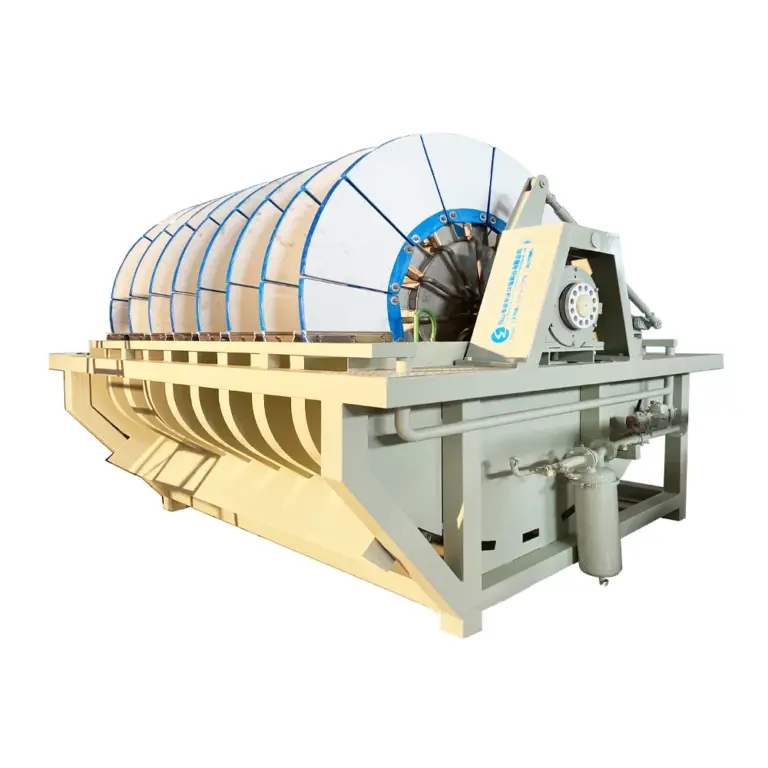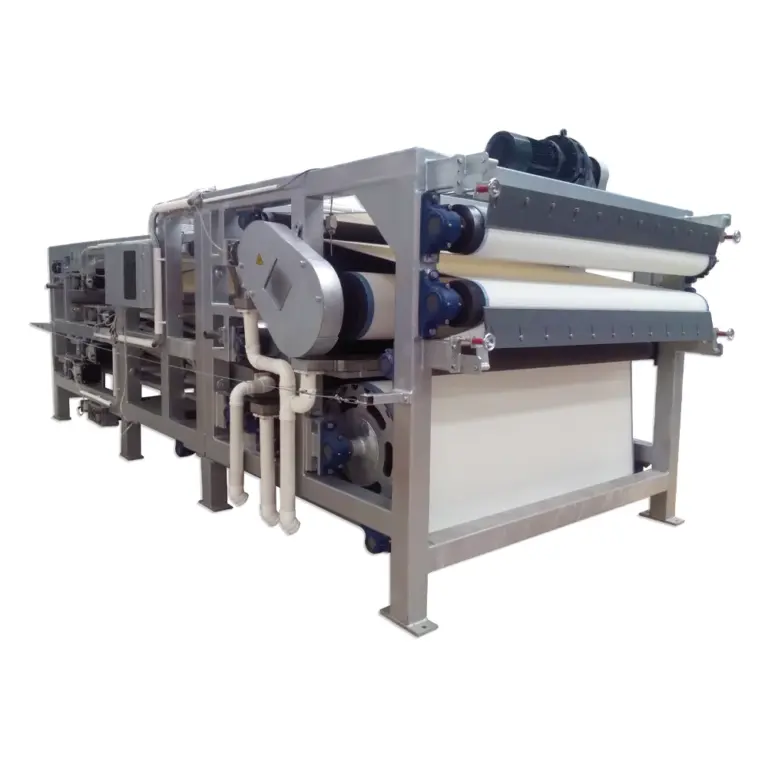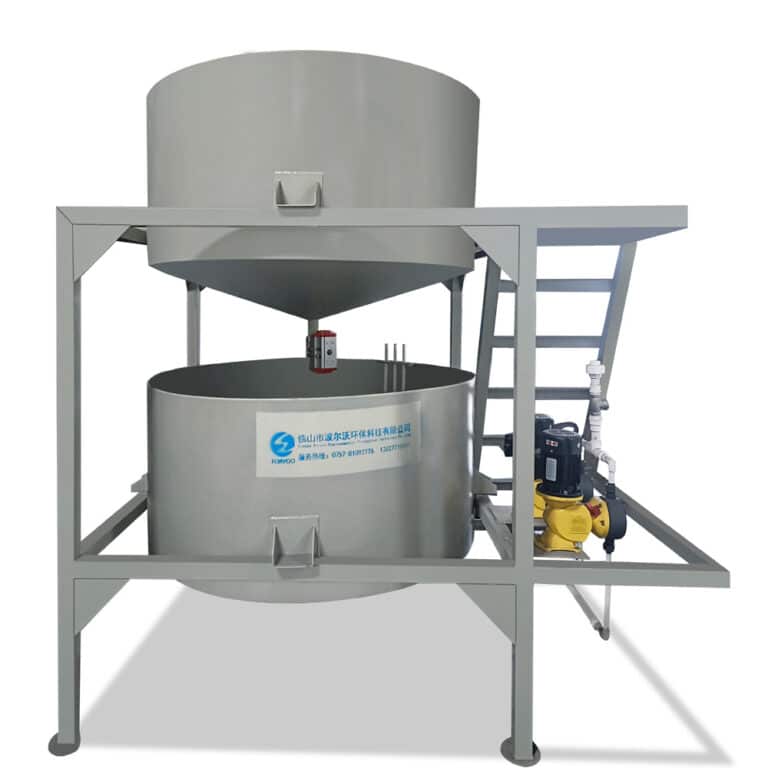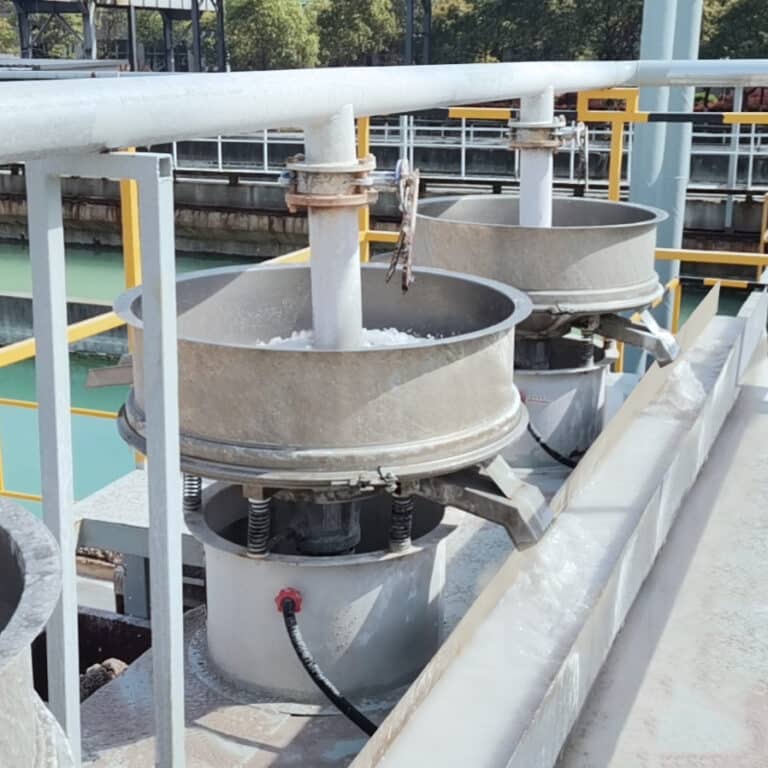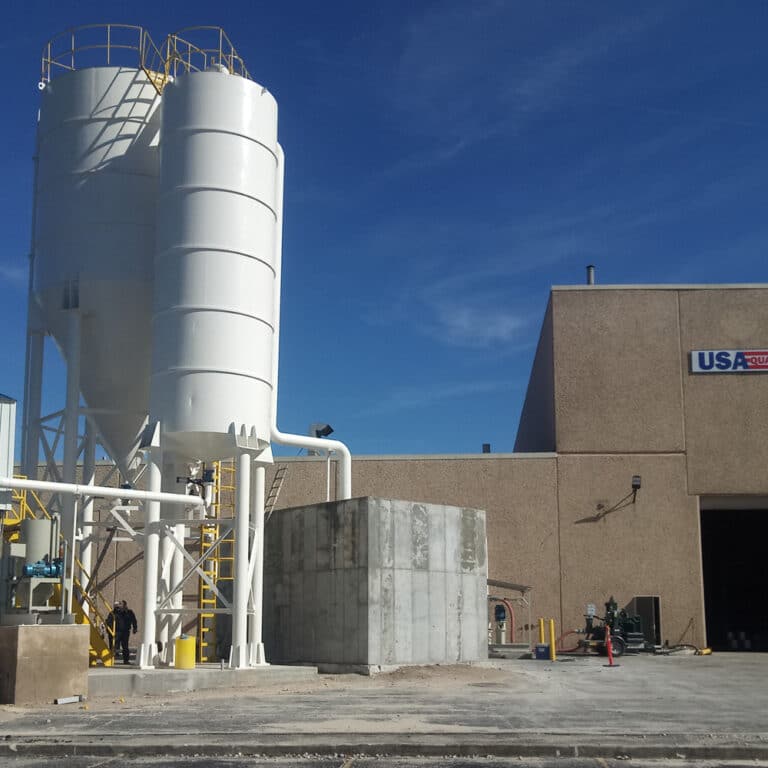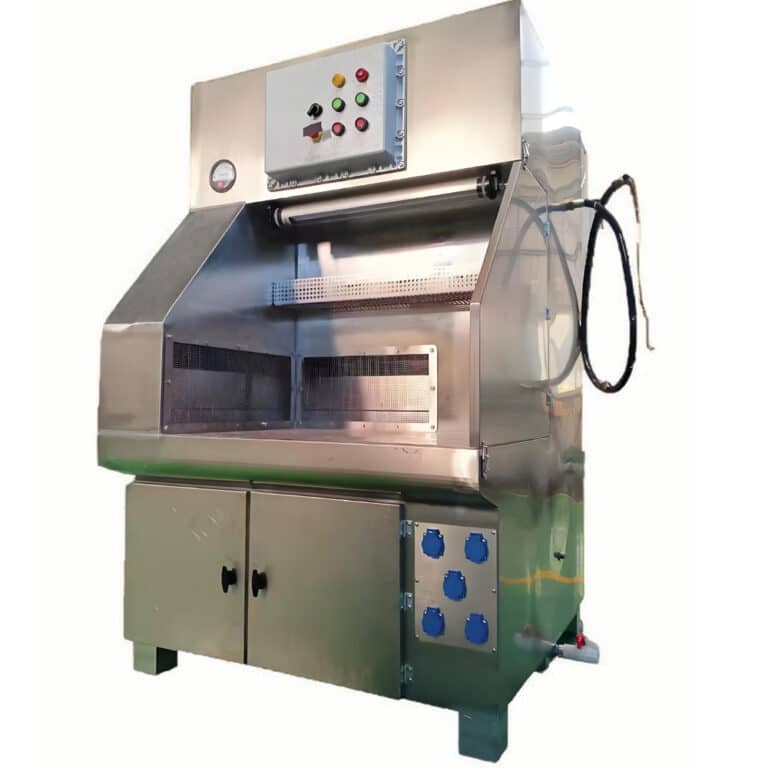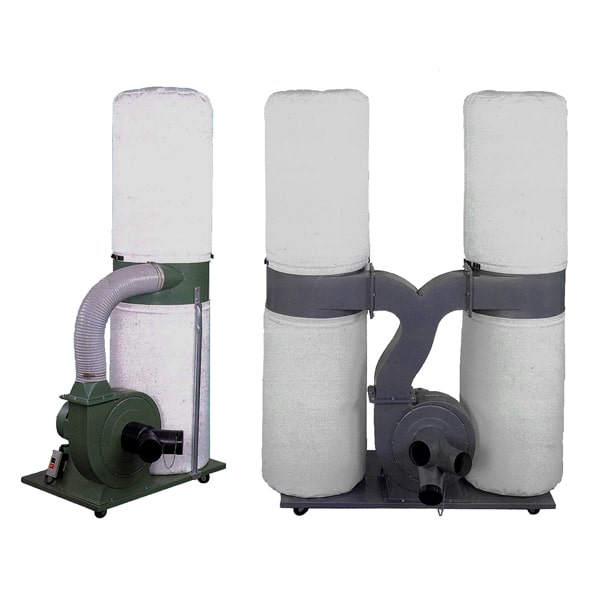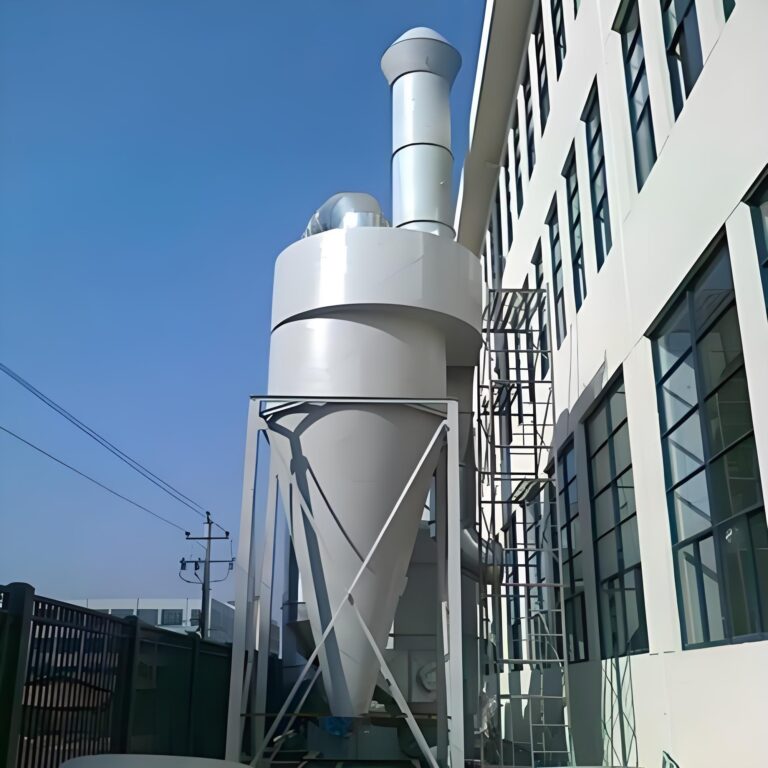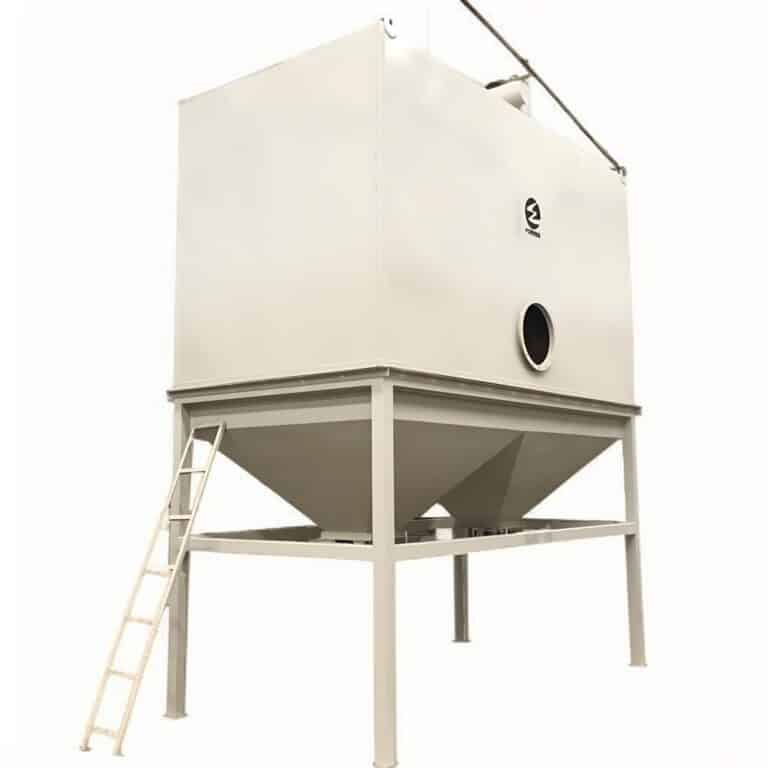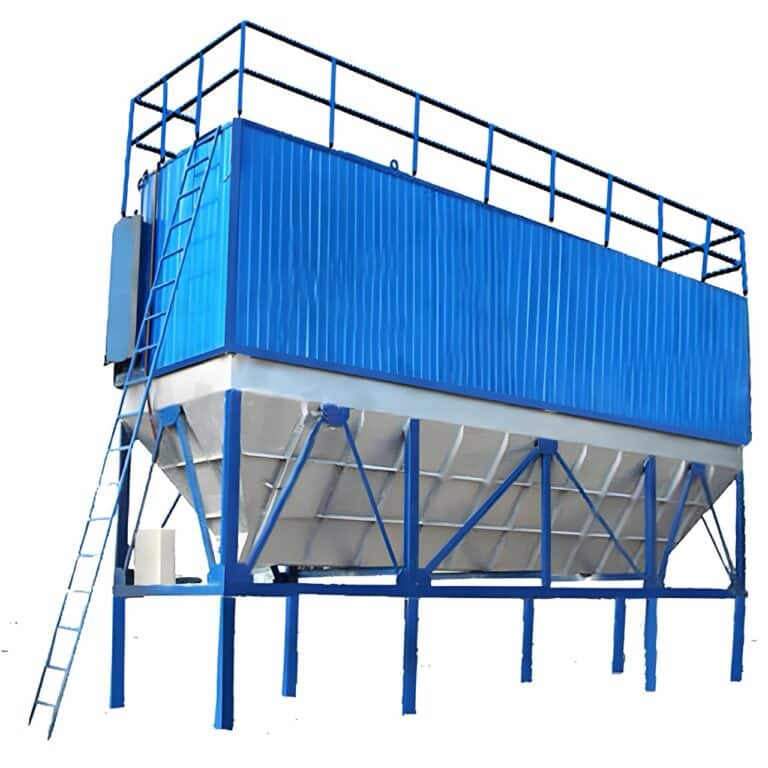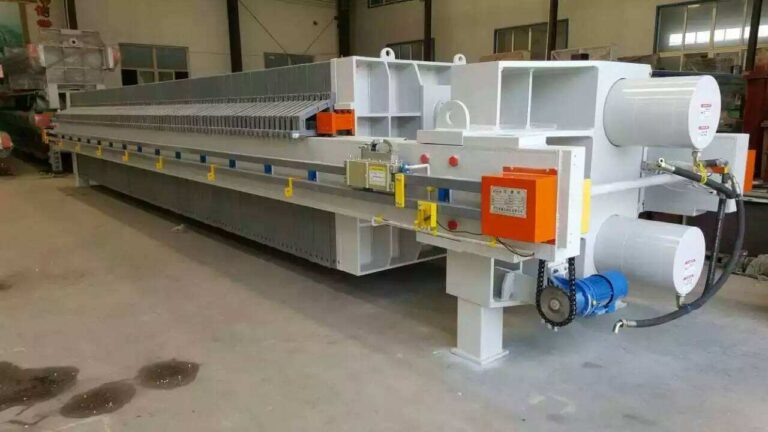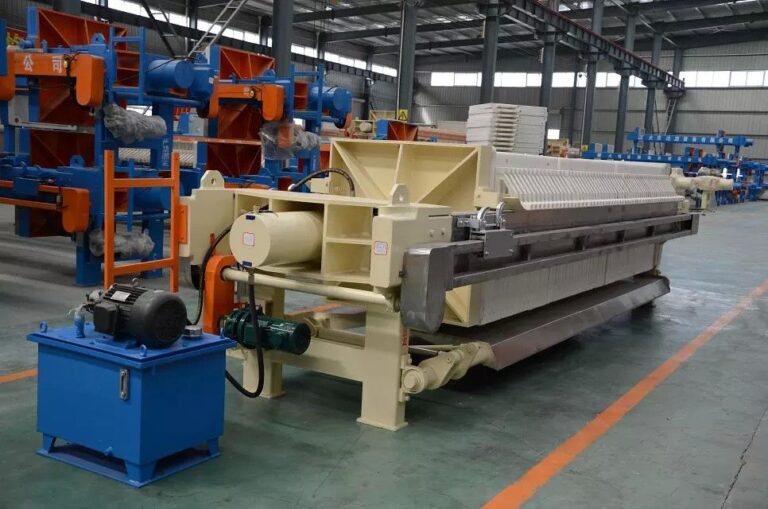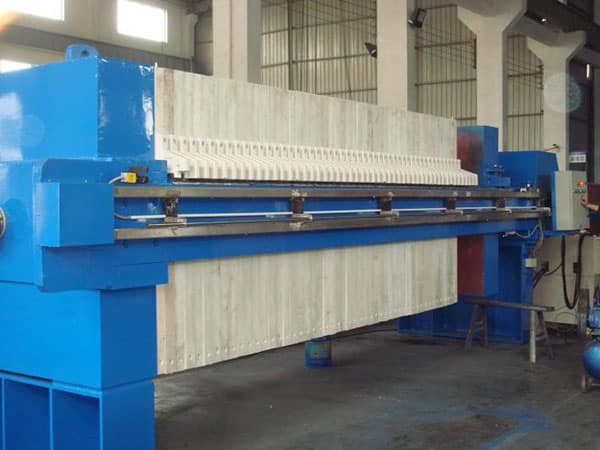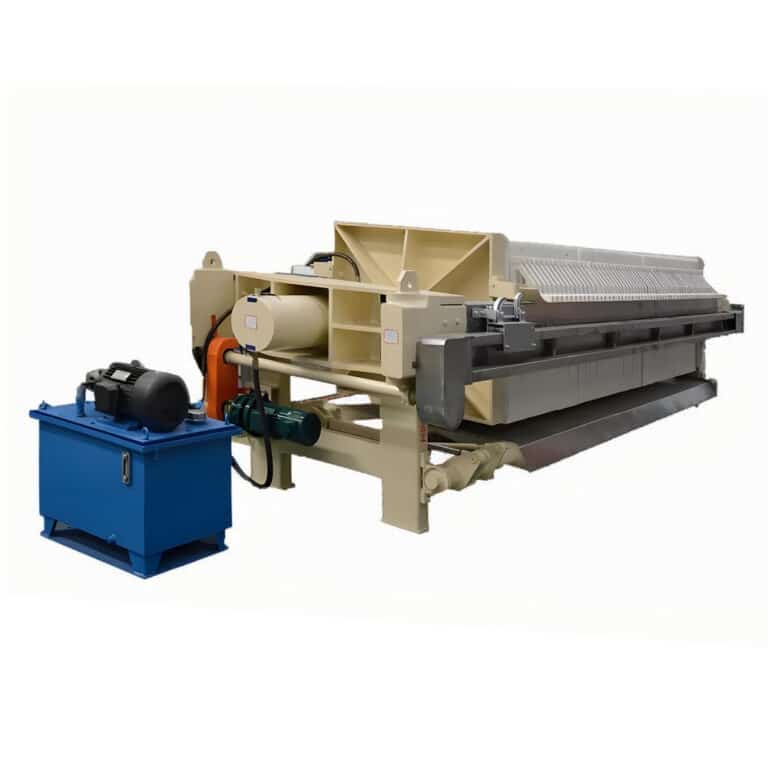W świecie filtracji przemysłowej niestandardowe membranowe prasy filtracyjne stały się przełomowym rozwiązaniem dla firm poszukujących dostosowanych procesów odwadniania i separacji. Te zaawansowane systemy oferują niezrównaną elastyczność i wydajność, umożliwiając firmom optymalizację operacji filtracji pod kątem konkretnych zastosowań i materiałów. Ponieważ branże wciąż ewoluują i stają przed nowymi wyzwaniami, popyt na niestandardowe rozwiązania w zakresie membranowych pras filtracyjnych gwałtownie wzrósł, skłaniając producentów do wprowadzania innowacji i rozszerzania swojej oferty.
Możliwość dostosowania membranowych pras filtracyjnych zrewolucjonizowała sposób, w jaki branże podchodzą do zadań związanych z filtracją. Od regulowanych rozmiarów płyt i materiałów po wyspecjalizowane konstrukcje membran i funkcje automatyzacji, te dostosowane rozwiązania zapewniają poziom precyzji i wydajności, którego gotowe systemy po prostu nie mogą dorównać. W tym artykule zagłębimy się w świat dostosowywania membranowych pras filtracyjnych, badając różne dostępne opcje, oferowane przez nie korzyści oraz branże, które mogą zyskać najwięcej dzięki tym niestandardowym systemom filtracji.
Rozpoczynając eksplorację niestandardowych membranowych pras filtracyjnych, odkryjemy kluczowe czynniki, które napędzają personalizację, najnowsze osiągnięcia technologiczne w tej dziedzinie oraz proces projektowania systemu, który idealnie spełnia Twoje unikalne wymagania. Niezależnie od tego, czy działasz w przemyśle wydobywczym, oczyszczaniu ścieków, produkcji żywności i napojów, czy w jakimkolwiek innym sektorze, który opiera się na wydajnej separacji ciał stałych od cieczy, zrozumienie potencjału niestandardowych membranowych pras filtracyjnych może być przełomem dla twoich operacji.
Niestandardowe membranowe prasy filtracyjne rewolucjonizują filtrację przemysłową, oferując dostosowane rozwiązania, które maksymalizują wydajność, zmniejszają koszty operacyjne i poprawiają jakość produktów w różnych branżach.
Jakie są kluczowe elementy niestandardowej membranowej prasy filtracyjnej?
Sercem każdej niestandardowej membranowej prasy filtracyjnej jest zestaw krytycznych komponentów, które działają w harmonii, aby zapewnić wyjątkową wydajność filtracji. Komponenty te można dostosować do konkretnych wymagań, zapewniając optymalne wyniki dla każdego unikalnego zastosowania.
Podstawowe elementy niestandardowej membranowej prasy filtracyjnej obejmują ramę, płyty filtracyjne, membrany, tkaniny filtracyjne i układ hydrauliczny. Każdy z tych elementów można dostosować w celu zwiększenia ogólnej wydajności i skuteczności procesu filtracji.
Jednym z najważniejszych aspektów dostosowywania membranowej prasy filtracyjnej jest projektowanie i wybór płyt filtracyjnych i membran. PORVOO oferuje szeroką gamę opcji, w tym różne materiały, rozmiary i konfiguracje dostosowane do różnych potrzeb filtracji. Na przykład wybór materiału membrany może znacząco wpłynąć na zdolność prasy do obsługi określonych zawiesin lub osiągnięcia pożądanej zawartości wilgoci w placku filtracyjnym.
Niestandardowe membranowe prasy filtracyjne mogą być wyposażone w specjalistyczne płyty filtracyjne i membrany zaprojektowane do obsługi trudnych materiałów, takich jak zawiesiny ścierne lub żrące chemikalia, wydłużając żywotność sprzętu i poprawiając wydajność filtracji nawet o 30%.
| Komponent | Opcje dostosowywania |
|---|---|
| Płyty filtracyjne | Rozmiar, materiał (PP, PE, PVDF), wykończenie powierzchni |
| Membrany | Materiał (guma, TPU), konstrukcja (płaska, falista) |
| Ściereczki filtracyjne | Typ tkaniny, wzór splotu, rozmiar porów |
| Rama | Rozmiar, materiał (stal węglowa, stal nierdzewna) |
| Układ hydrauliczny | Wydajność ciśnieniowa, poziom automatyzacji |
Podsumowując, możliwość dostosowania każdego elementu membranowej prasy filtracyjnej pozwala na stworzenie systemu, który jest idealnie dopasowany do konkretnych potrzeb danego zastosowania, zapewniając optymalną wydajność i trwałość.
Jak konstrukcja płyty wpływa na wydajność filtracji?
Konstrukcja płyt filtracyjnych odgrywa kluczową rolę w określaniu ogólnej wydajności i skuteczności membranowej prasy filtracyjnej. Niestandardowe projekty płyt mogą znacznie poprawić wydajność filtracji, skrócić czas cyklu i poprawić jakość placka filtracyjnego.
Jednym z kluczowych aspektów projektowania płyt jest konfiguracja kanałów zasilających i systemów odprowadzania filtratu. Elementy te można zoptymalizować w celu zapewnienia równomiernego rozprowadzania zawiesiny na tkaninie filtracyjnej i skutecznego usuwania filtratu. Dodatkowo, teksturę powierzchni i profil płyt można dostosować w celu promowania lepszego uwalniania placka i zapobiegania zatykaniu.
Dostosowanie membranowej prasy filtracyjnej rozciąga się również na wybór materiałów płyt. Różne materiały oferują różne poziomy odporności chemicznej, trwałości i właściwości termicznych. Na przykład, płyty polipropylenowe mogą być odpowiednie do zastosowań związanych z korozyjnymi chemikaliami, podczas gdy płyty PVDF mogą być preferowane do pracy w wysokich temperaturach.
Zaawansowane konstrukcje płyt ze zoptymalizowanymi kanałami zasilającymi i systemami odwadniania mogą skrócić czas cyklu filtracji nawet o 25% w porównaniu ze standardowymi płytami, co prowadzi do zwiększenia przepustowości i poprawy wydajności operacyjnej.
| Funkcja konstrukcji płyty | Wpływ na filtrację |
|---|---|
| Konfiguracja kanału zasilającego | Poprawia dystrybucję gnojowicy |
| Schemat odprowadzania filtratu | Usprawnia usuwanie cieczy |
| Tekstura powierzchni | Ułatwia uwalnianie ciasta |
| Wybór materiału | Określa kompatybilność chemiczną |
| Grubość płyty | Wpływa na odporność na ciśnienie |
Podsumowując, dostosowanie konstrukcji płyt jest potężnym narzędziem do zwiększania wydajności membranowych pras filtracyjnych. Poprzez staranne rozważenie czynników takich jak konfiguracja kanału zasilającego, tekstura powierzchni i wybór materiału, firmy mogą osiągnąć znaczną poprawę wydajności filtracji i jakości produktu.
Jaką rolę odgrywają membrany w niestandardowych prasach filtracyjnych?
Membrany są cechą charakterystyczną niestandardowych membranowych pras filtracyjnych, odgrywając kluczową rolę w procesie filtracji i oferując unikalne zalety w porównaniu z tradycyjnymi konstrukcjami pras filtracyjnych. Możliwość dostosowania charakterystyki membrany pozwala na precyzyjną kontrolę nad procesem filtracji, co skutkuje poprawą wydajności odwadniania i jakości placka.
Niestandardowe membrany mogą być zaprojektowane z określonych materiałów, grubości i wzorów powierzchni, aby pasowały do różnych zastosowań. Na przykład membrany elastomerowe mogą być wybierane ze względu na ich elastyczność i zdolność do wywierania równomiernego nacisku na placek filtracyjny, podczas gdy bardziej sztywne membrany mogą być preferowane do zastosowań wymagających wyższych ciśnień roboczych.
Projektowanie systemów napełniania membran jest kolejnym obszarem, w którym dostosowanie może znacząco wpłynąć na wydajność. Zaawansowane systemy pozwalają na precyzyjną kontrolę nad ciśnieniem i czasem napełniania membrany, umożliwiając operatorom precyzyjne dostrojenie procesu filtracji w celu uzyskania optymalnych wyników.
Niestandardowe konstrukcje membran mogą osiągnąć do 40% wyższą zawartość substancji stałych w plackach filtracyjnych w porównaniu z konwencjonalnymi prasami filtracyjnymi, co prowadzi do znacznych oszczędności w dalszym przetwarzaniu i kosztach utylizacji.
| Funkcja membrany | Korzyści z personalizacji |
|---|---|
| Materiał | Odporność chemiczna, trwałość |
| Grubość | Tolerancja ciśnienia, elastyczność |
| Wzór powierzchni | Uwalnianie placka, wydajność filtracji |
| System inflacji | Kontrola procesu, redukcja czasu cyklu |
| Edge Design | Skuteczność uszczelnienia, trwałość |
Podsumowując, dostosowanie membran w prasach filtracyjnych oferuje potężne środki optymalizacji wydajności filtracji. Dostosowując charakterystykę membrany do konkretnych wymagań aplikacji, firmy mogą osiągnąć doskonałe wyniki odwadniania, obniżyć koszty operacyjne i poprawić jakość produktu.
W jaki sposób automatyzacja może usprawnić działanie niestandardowej membranowej prasy filtracyjnej?
Automatyzacja odgrywa coraz ważniejszą rolę w dostosowywaniu membranowych pras filtracyjnych, oferując zwiększoną kontrolę, lepszą wydajność i mniejsze wymagania dotyczące pracy. Integrując zaawansowane systemy automatyzacji, firmy mogą zoptymalizować swoje procesy filtracji i osiągnąć spójne, wysokiej jakości wyniki.
Niestandardowe rozwiązania automatyzacji dla membranowych pras filtracyjnych mogą obejmować takie funkcje, jak programowalne sterowniki logiczne (PLC), interfejsy człowiek-maszyna (HMI) i zaawansowane układy czujników. Systemy te pozwalają na precyzyjną kontrolę nad każdym aspektem cyklu filtracji, od początkowego napełniania do końcowego rozładowania placka.
Jedną z kluczowych zalet automatyzacji w niestandardowych membranowych prasach filtracyjnych jest możliwość wdrożenia adaptacyjnych strategii sterowania. Systemy te mogą automatycznie dostosowywać parametry operacyjne w oparciu o dane w czasie rzeczywistym, zapewniając optymalną wydajność nawet w przypadku zmiennej charakterystyki paszy lub zmieniających się warunków środowiskowych.
Zaawansowane systemy automatyzacji w niestandardowych membranowych prasach filtracyjnych mogą zmniejszyć interwencję operatora nawet o 80%, minimalizując błędy ludzkie i poprawiając ogólną spójność i bezpieczeństwo procesu.
| Funkcja automatyzacji | Korzyści operacyjne |
|---|---|
| Sterowanie PLC | Precyzyjne zarządzanie procesami |
| HMI | Obsługa przyjazna dla użytkownika |
| Układy czujników | Monitorowanie wydajności w czasie rzeczywistym |
| Kontrola adaptacyjna | Optymalne dostosowanie parametrów |
| Rejestrowanie danych | Optymalizacja procesów, rozwiązywanie problemów |
Podsumowując, integracja technologii automatyzacji w niestandardowych membranowych prasach filtracyjnych oferuje znaczące korzyści pod względem wydajności operacyjnej, jakości produktu i kontroli procesu. Wykorzystując te zaawansowane systemy, firmy mogą zmaksymalizować korzyści płynące z niestandardowych rozwiązań filtracyjnych i pozostać na czele w coraz bardziej konkurencyjnym krajobrazie przemysłowym.
Jakie branże odnoszą największe korzyści z niestandardowych membranowych pras filtracyjnych?
Niestandardowe rozwiązania membranowych pras filtracyjnych oferują znaczące korzyści w wielu branżach, z których każda ma swoje unikalne wymagania i wyzwania związane z filtracją. Zrozumienie, które sektory mogą zyskać najwięcej dzięki tym dostosowanym systemom, może pomóc firmom w podejmowaniu świadomych decyzji dotyczących inwestycji w sprzęt filtracyjny.
Przemysł wydobywczy i przetwórstwa minerałów jest jednym z głównych beneficjentów niestandardowej technologii membranowych pras filtracyjnych. Sektory te często mają do czynienia z dużymi ilościami zawiesin zawierających cząstki ścierne, co wymaga solidnych i wydajnych rozwiązań odwadniających. Niestandardowe membranowe prasy filtracyjne mogą być zaprojektowane do obsługi wysokiej zawartości ciał stałych i są odporne na zużycie, co prowadzi do poprawy wskaźników odzysku i zmniejszenia kosztów operacyjnych.
Inną branżą, która w znacznym stopniu korzysta z niestandardowych membranowych pras filtracyjnych, jest oczyszczanie ścieków. Miejskie i przemysłowe oczyszczalnie ścieków mają do czynienia z różnymi charakterystykami dopływu i rygorystycznymi wymaganiami dotyczącymi jakości ścieków. Dostosowane rozwiązania membranowych pras filtracyjnych można zoptymalizować pod kątem określonych zanieczyszczeń, osiągając wysoki poziom separacji ciał stałych i cieczy oraz wytwarzając bardziej suche placki osadowe w celu łatwiejszej utylizacji lub dalszego przetwarzania.
Wykazano, że niestandardowe membranowe prasy filtracyjne w przemyśle wydobywczym zwiększają współczynnik odzysku minerałów nawet o 15%, jednocześnie zmniejszając zużycie wody nawet o 30%, przyczyniając się zarówno do realizacji celów ekonomicznych, jak i środowiskowych.
| Przemysł | Kluczowe korzyści z personalizacji |
|---|---|
| Górnictwo | Odporność na ścieranie, wysoka przepustowość |
| Oczyszczanie ścieków | Optymalizacja pod kątem zanieczyszczeń |
| Żywność i napoje | Higieniczna konstrukcja, jakość produktu |
| Chemiczny | Odporność na korozję, funkcje bezpieczeństwa |
| Farmaceutyki | Zgodność z GMP, wysoka czystość |
Podsumowując, podczas gdy niestandardowe rozwiązania membranowych pras filtracyjnych oferują korzyści w wielu branżach, sektory zajmujące się trudnymi wymaganiami dotyczącymi filtracji lub rygorystycznymi standardami jakości mogą zyskać najwięcej. Inwestując w dostosowane systemy filtracji, branże te mogą osiągnąć znaczną poprawę wydajności, jakości produktów i zgodności z przepisami.
Jak wybór materiału wpływa na wydajność membranowej prasy filtracyjnej?
Wybór materiałów dla różnych komponentów membranowej prasy filtracyjnej odgrywa kluczową rolę w określaniu jej ogólnej wydajności, trwałości i przydatności do określonych zastosowań. Dostosowanie wyboru materiałów pozwala firmom zoptymalizować swoje systemy filtracji pod kątem określonych warunków pracy i wymagań procesowych.
Jednym z najbardziej krytycznych obszarów doboru materiałów są płyty filtracyjne i membrany. Elementy te wchodzą w bezpośredni kontakt z filtrowaną zawiesiną i muszą być odporne na naprężenia mechaniczne, chemiczne i termiczne procesu. Na przykład, polipropylen może być wybrany ze względu na jego odporność chemiczną w zastosowaniach obejmujących kwaśne zawiesiny, podczas gdy PVDF może być preferowany do operacji wysokotemperaturowych.
Wybór materiału tkaniny filtracyjnej jest kolejnym ważnym czynnikiem przy dostosowywaniu membranowej prasy filtracyjnej. Różne tkaniny oferują różne poziomy wydajności filtracji, właściwości uwalniania placka i odporności na oślepianie. Powszechnie stosowane są materiały syntetyczne, takie jak poliester lub polipropylen, ale bardziej wyspecjalizowane opcje, takie jak tkaniny powlekane PTFE, mogą być stosowane w szczególnie wymagających zastosowaniach.
Właściwy dobór materiałów w niestandardowych membranowych prasach filtracyjnych może wydłużyć żywotność sprzętu nawet o 50% w trudnych warunkach pracy, co skutkuje znacznymi długoterminowymi oszczędnościami kosztów i skróceniem przestojów na konserwację.
| Komponent | Opcje materiałowe | Kluczowe kwestie |
|---|---|---|
| Płyty filtracyjne | PP, PE, PVDF | Odporność chemiczna, tolerancja na temperaturę |
| Membrany | Guma, TPU, EPDM | Elastyczność, trwałość, kompatybilność chemiczna |
| Tkanina filtracyjna | Poliester, PP, PTFE | Wydajność filtracji, uwalnianie placka, odporność na oślepianie |
| Rama | Stal węglowa, stal nierdzewna | Odporność na korozję, integralność strukturalna |
| Uszczelki | NBR, EPDM, FKM | Kompatybilność chemiczna, zakres temperatur |
Podsumowując, dostosowanie doboru materiałów w membranowych prasach filtracyjnych jest potężnym narzędziem do optymalizacji wydajności i trwałości systemu. Starannie rozważając specyficzne wymagania każdego zastosowania i odpowiednio dobierając materiały, firmy mogą osiągnąć doskonałe wyniki filtracji i zmaksymalizować zwrot z inwestycji w sprzęt.
Jakie są najnowsze innowacje w technologii membranowych pras filtracyjnych?
Dziedzina technologii membranowych pras filtracyjnych stale się rozwija, a nowe innowacje pojawiają się w celu sprostania wyzwaniom branżowym i poprawy ogólnej wydajności. Bycie na bieżąco z tymi postępami ma kluczowe znaczenie dla firm, które chcą utrzymać przewagę konkurencyjną w swoich operacjach filtracji.
Jedną z najważniejszych ostatnich innowacji jest rozwój inteligentnych membranowych pras filtracyjnych. Systemy te wykorzystują zaawansowane czujniki, analizę danych i algorytmy uczenia maszynowego w celu optymalizacji wydajności w czasie rzeczywistym. Dzięki ciągłemu monitorowaniu kluczowych parametrów, takich jak ciśnienie, natężenie przepływu i zawartość wilgoci w placku, inteligentne prasy mogą automatycznie dostosowywać warunki pracy, aby zmaksymalizować wydajność i jakość produktu.
Kolejnym obszarem innowacji jest projektowanie membran. Nowe materiały i techniki produkcji umożliwiają tworzenie membran o ulepszonych właściwościach, takich jak lepsza odporność chemiczna, większa elastyczność i dłuższa żywotność. Niektórzy producenci eksperymentują nawet z nanoinżynieryjnymi powierzchniami membran, które mogą znacznie poprawić wydajność filtracji i zmniejszyć przyczepność osadu.
Inteligentne membranowe prasy filtracyjne wyposażone w zaawansowane funkcje analityczne i możliwości uczenia maszynowego wykazały zdolność do zmniejszenia zużycia energii nawet o 20% przy jednoczesnej poprawie wydajności filtracji o 15%, co prowadzi do znacznych oszczędności kosztów operacyjnych.
| Innowacja | Kluczowe korzyści |
|---|---|
| Inteligentne systemy sterowania | Optymalizacja w czasie rzeczywistym, konserwacja predykcyjna |
| Zaawansowane materiały membranowe | Zwiększona wytrzymałość, lepsza wydajność |
| Nanoinżynieryjne powierzchnie | Zwiększona wydajność filtracji, łatwiejsze uwalnianie osadu |
| Modułowa konstrukcja | Skalowalność, łatwiejsza konserwacja |
| Systemy odzyskiwania energii | Zmniejszone zużycie energii, zrównoważony rozwój |
Podsumowując, najnowsze innowacje w technologii membranowych pras filtracyjnych koncentrują się na poprawie wydajności, obniżeniu kosztów operacyjnych i zwiększeniu ogólnej wydajności. Przyjmując te postępy i włączając je do niestandardowych rozwiązań filtracyjnych, firmy mogą pozostać w czołówce swoich branż i osiągnąć doskonałe wyniki w procesach separacji ciał stałych od cieczy.
W jaki sposób firmy mogą określić odpowiednie opcje dostosowywania do swoich potrzeb?
Wybór odpowiednich opcji dostosowywania membranowej prasy filtracyjnej jest krytyczną decyzją, która może znacząco wpłynąć na wydajność operacyjną i jakość produktu. Aby dokonać świadomego wyboru, firmy muszą dokładnie ocenić swoje specyficzne wymagania i wziąć pod uwagę różne czynniki wpływające na wydajność filtracji.
Pierwszym krokiem do określenia odpowiednich opcji dostosowywania jest przeprowadzenie dokładnej analizy materiału, który ma być filtrowany. Obejmuje to ocenę właściwości, takich jak rozkład wielkości cząstek, zawartość ciał stałych, skład chemiczny i wrażliwość na temperaturę. Zrozumienie tych cech pomaga w wyborze odpowiednich konstrukcji płyt filtracyjnych, materiałów membranowych i rodzajów tkanin.
Kolejną ważną kwestią jest pożądany wynik procesu filtracji. Czy dążysz do maksymalnej wydajności odwadniania, wysokiej przepustowości lub ultraczystego filtratu? Każdy cel może wymagać innego podejścia do dostosowywania, takiego jak specjalistyczne projekty membran, zoptymalizowane konfiguracje płyt lub zaawansowane systemy automatyzacji.
Kompleksowa analiza wymagań dotyczących filtracji, w tym testy laboratoryjne i próby w skali pilotażowej, mogą prowadzić do wyboru rozwiązań dostosowanych do indywidualnych potrzeb, które poprawiają wydajność filtracji nawet o 35% i zmniejszają koszty operacyjne nawet o 25% w porównaniu ze standardowymi, gotowymi rozwiązaniami.
| Rozważania | Wpływ na personalizację |
|---|---|
| Właściwości materiału | Konstrukcja płyty, wybór membrany |
| Pożądany wynik | Parametry procesu, poziom automatyzacji |
| Wielkość produkcji | Rozmiar prasy, potrzeby w zakresie automatyzacji |
| Środowisko operacyjne | Wybór materiału, funkcje bezpieczeństwa |
| Wymogi regulacyjne | Standardy projektowe, dokumentacja |
Podsumowując, określenie odpowiednich opcji dostosowywania membranowej prasy filtracyjnej wymaga starannej oceny różnych czynników, w tym właściwości materiału, pożądanych wyników i ograniczeń operacyjnych. Przyjmując systematyczne podejście do tego procesu i ściśle współpracując z doświadczonymi producentami, firmy mogą opracować dostosowane rozwiązania filtracyjne, które doskonale spełniają ich potrzeby i zapewniają znaczną poprawę wydajności i efektywności.
Niestandardowe membranowe prasy filtracyjne stanowią znaczący krok naprzód w technologii filtracji przemysłowej, oferując niezrównaną elastyczność i wydajność w szerokim zakresie zastosowań. Dostosowując kluczowe komponenty, takie jak płyty filtracyjne, membrany i systemy automatyzacji do konkretnych wymagań operacyjnych, firmy mogą osiągnąć znaczną poprawę wydajności, jakości produktu i kosztów operacyjnych.
W tym artykule zbadaliśmy różne aspekty dostosowywania membranowych pras filtracyjnych, od kluczowej roli doboru materiałów po najnowsze innowacje w technologii inteligentnej filtracji. Widzieliśmy, w jaki sposób branże, od górnictwa po farmaceutykę, mogą korzystać z tych dostosowanych rozwiązań, stawiając czoła wyjątkowym wyzwaniom i optymalizując procesy separacji ciał stałych od cieczy.
Nie można przecenić znaczenia starannej analizy i wskazówek ekspertów w wyborze odpowiednich opcji dostosowywania. Dzięki dokładnej ocenie właściwości materiałów, pożądanych rezultatów i ograniczeń operacyjnych, firmy mogą opracować rozwiązania filtracyjne, które nie tylko zaspokoją ich bieżące potrzeby, ale także zapewnią im przyszły sukces w coraz bardziej konkurencyjnym krajobrazie przemysłowym.
Ponieważ technologia membranowych pras filtracyjnych wciąż ewoluuje, dostosowanie jej do potrzeb klienta stanowi drogę do pozostania w czołówce pod względem wydajności i efektywności filtracji. Niezależnie od tego, czy chcesz poprawić szybkość odwadniania, zmniejszyć zużycie energii, czy zwiększyć czystość produktu, niestandardowe rozwiązanie membranowej prasy filtracyjnej może zapewnić dostosowane podejście potrzebne do osiągnięcia Twoich celów.
W erze, w której wydajność i zrównoważony rozwój są najważniejsze, inwestowanie w niestandardową technologię membranowych pras filtracyjnych to nie tylko wybór - to strategiczny imperatyw dla firm, które chcą zoptymalizować swoje procesy filtracji i utrzymać przewagę konkurencyjną w swoich branżach.
Zasoby zewnętrzne
Membranowa prasa filtracyjna - Na tej stronie wyjaśniono różnice między membranowymi prasami filtracyjnymi a zwykłymi komorowymi prasami filtracyjnymi, podkreślając potencjał dostosowania dzięki zastosowaniu elastycznych membran w celu zwiększenia odwodnienia.
Prasa filtracyjna | Płyty komorowe - EnviroTech Molded Products, Inc - EnviroTech specjalizuje się w projektowaniu i produkcji różnych płyt filtracyjnych, w tym membranowych płyt filtracyjnych. Oferuje opcje dostosowywania przy użyciu różnych materiałów i zapewnia szereg akcesoriów.
Membranowa prasa filtracyjna Aparatura Przewodnik ściskający - Niniejszy przewodnik zawiera szczegółowe informacje na temat komponentów i zalet membranowych pras filtracyjnych, w tym wskazówki dotyczące konserwacji i obsługi, które mogą być przydatne przy dostosowywaniu urządzenia do konkretnych potrzeb.
Prasy filtracyjne ANDRITZ | Modele z belką boczną i modele podwieszane - ANDRITZ oferuje w pełni konfigurowalne przemysłowe prasy filtracyjne, w tym membranowe prasy filtracyjne. Strona zawiera szczegółowe informacje na temat elastyczności i różnych dostępnych ciśnień roboczych, które można dostosować do różnych zastosowań.
Niestandardowe płyty filtracyjne - FLSmidth - Choć nie jest to bezpośrednio powiązane, firma FLSmidth jest znana z dostarczania niestandardowych rozwiązań w zakresie płyt filtracyjnych, w tym membranowych płyt filtracyjnych. Ich doświadczenie w technologii filtracji może być wykorzystane w niestandardowych systemach pras filtracyjnych.
Membranowe prasy filtracyjne - M.W. Watermark - M.W. Watermark oferuje membranowe prasy filtracyjne z konfigurowalnymi funkcjami, takimi jak różne rozmiary płyt i materiały, zaspokajające różne potrzeby filtracji przemysłowej.
Dostosowanie prasy filtracyjnej - Micronics Engineered Filtration - Micronics zapewnia niestandardowe rozwiązania w zakresie pras filtracyjnych, w tym membranowe prasy filtracyjne, z opcjami różnych tkanin filtracyjnych, płyt i systemów sterowania, aby spełnić określone wymagania aplikacji.
Niestandardowe rozwiązania dla pras filtracyjnych - Evoqua Water Technologies - Evoqua oferuje niestandardowe systemy pras filtracyjnych, w tym membranowe prasy filtracyjne, zaprojektowane w celu spełnienia unikalnych potrzeb różnych branż, takich jak oczyszczanie ścieków i procesy przemysłowe.
